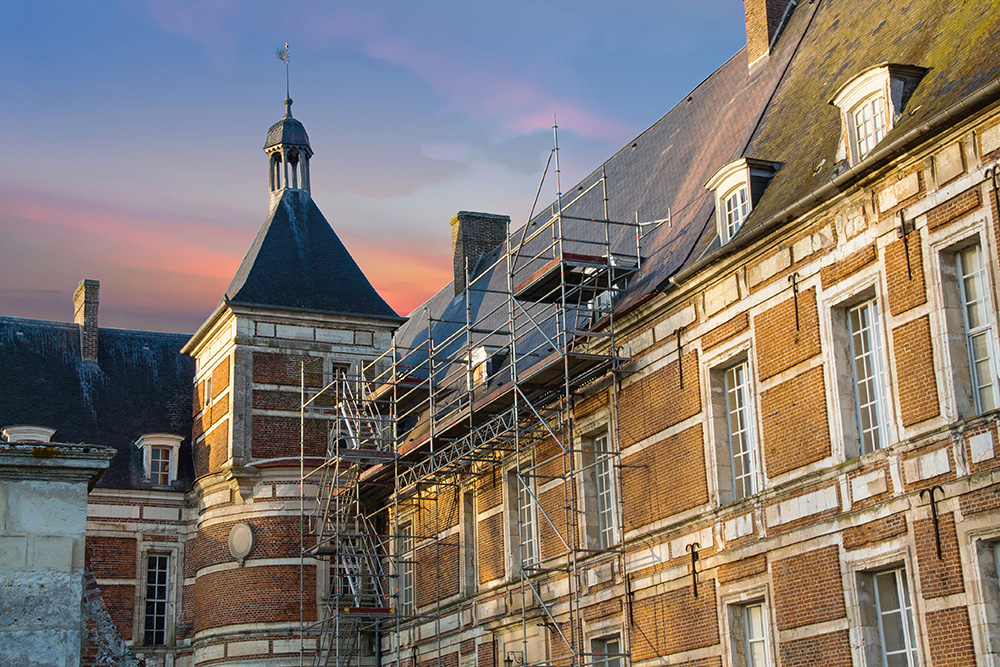Restoring a chateau is a dream project for many, offering the chance to bring history back to life while creating a beautiful home or stunning event venue. However, it’s a significant undertaking that requires careful planning, time, and resources. Here’s a comprehensive guide on how to embark on this rewarding journey.
1. Research and Planning
Understand the History
Before you start, delve into the history of the chateau. Understanding its architectural style, original purpose, and previous owners can guide your restoration decisions.
Set Clear Goals
Decide whether you want to restore the chateau to its original state, modernize it, or find a balance between the two. This will influence every aspect of the project.
2. Assess the Condition
Hire Experts
Engage structural engineers, architects, and historians to evaluate the condition of the building. This team will identify issues like structural damage, water infiltration, and historical significance.
Create a Detailed Plan
Based on their assessments, develop a restoration plan that outlines necessary repairs, estimated costs, and timelines.
3. Secure Permits and Funding
Obtain Necessary Permits
Restoration often requires permits, especially for historically significant buildings. Check with local authorities to ensure compliance with regulations.
Explore Funding Options
Restoration can be costly. Look into grants, loans, and tax incentives available for historical preservation projects.
4. Begin Restoration
Structural Repairs
Start with essential structural repairs. Address foundational issues, roof integrity, and any structural weaknesses to ensure safety.
Preserve Historical Features
Focus on preserving or restoring original features such as moldings, fireplaces, and frescoes. Hire skilled craftsmen familiar with traditional techniques.
Modernize Systems
Update plumbing, electrical, and heating systems to meet modern standards while minimizing impact on historical elements.
5. Interior and Exterior Renovations
Interior Design
Choose design elements that complement the chateau’s style. Balance between historical authenticity and modern comfort.
Landscaping
Restore gardens and outdoor areas to enhance the chateau’s aesthetic appeal. Consider historical garden designs relevant to the period.
6. Final Touches
Furnishing and Decoration
Select furnishings that reflect the chateau’s history. Antiques, period pieces, and custom reproductions can add authenticity.
Regular Maintenance Plan
Once restored, implement a maintenance plan to preserve the chateau’s condition. Regular inspections and repairs are crucial.
7. Celebrate the Completion
Host an Opening Event
Celebrate the successful restoration with an event. It’s a great way to thank everyone involved and showcase the chateau.
Share Your Story
Document the restoration process and share your experiences. This can inspire others and provide valuable insights into chateau restoration.
Restoring a chateau is not just about reviving a building; it’s about preserving history and creating a legacy for future generations. With careful planning and dedication, your dream of restoring a chateau can become a reality.
